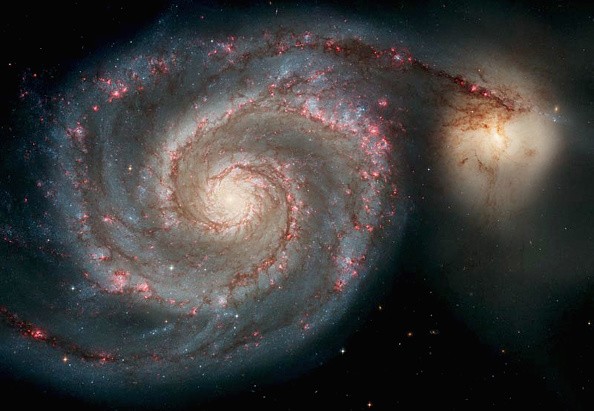The Hubble Space Telescope has taken a photo of a spiral galaxy that is located 68 million light-years away using its Wide Field Camera 3.
The spiral galaxy is known as NGC 1385, which can be found 68 million light-years away. The galaxy is located in a constellation known as Fornax.
Hubble Space Telescope Takes Photo of Spiral Galaxy
The 31-year-old Hubble Space Telescope is back to doing what it does best after it went offline last June.
The space telescope was able to take a photo of the NGC 1385 galaxy using its Wide Field Camera 3, according to Futurism. The Wide Field Camera 3 is "considered to be the telescope's 'workhorse camera' due to its reliability."
According to the National Aeronautics and Space Administration (NASA), the Wide Field Camera 3 was installed during the last time astronauts were able to visit the Hubble Space Telescope, which was in 2009.
NASA describes the image it has taken of the spiral galaxy as "jewel-bright."
Other Images Hubble's Wide Field Camera 3 Took Through the Years
The Hubble Space Telescope has been a witness to some of the most amazing events and discoveries in space in the past three decades. Thanks to its Wide Field Camera 3 snapping away and capturing these moments each time, we have been able to see them as well.
In 2019, the Hubble Space Telescope snapped a photo of two galaxies colliding using the Wide Field Camera 3. Five years prior, Hubble was able to take a photo of 30 Daradus, otherwise known as the Tarantula Nebula.
Related Article: NASA's Hubble Space Telescope Captures Image Of Largest And Hottest Galaxy Ever Found
What is a Spiral Galaxy Anyway?

The Hubble Space Telescope's recent photo is that of the NGC 1385, a spiral galaxy. But what is a spiral galaxy anyway?
Spiral galaxies are probably the most familiar kind of galaxies due to its shape, as its name suggests. According to NASA, spiral galaxies "have a distinctive shape with spiral arms in a relatively flat disk and a central 'bulge,' which has a large concentration of stars."
Younger stars are found in the arms of spiral galaxies while the older ones are located in the bulge.
An example of a spiral galaxy is the Milky Way galaxy, where the Earth and the solar system are located.
Other spiral galaxies that exist in the universe include the NGC 6872, which is considered one of the largest spiral galaxies and is located 522,000 light-years away, and A1689B11, which is a galaxy that is 11 billion years old according to an article by Space.
NGC 1385, the spiral galaxy whose photo the Hubble Space Telescope recently took, is located in the Fornax constellation, which was named after the Latin word for furnace by French astronomer Nicolas-Louis de Lacaille.
This article is owned by Tech Times
Written by Isabella James
ⓒ 2026 TECHTIMES.com All rights reserved. Do not reproduce without permission.




